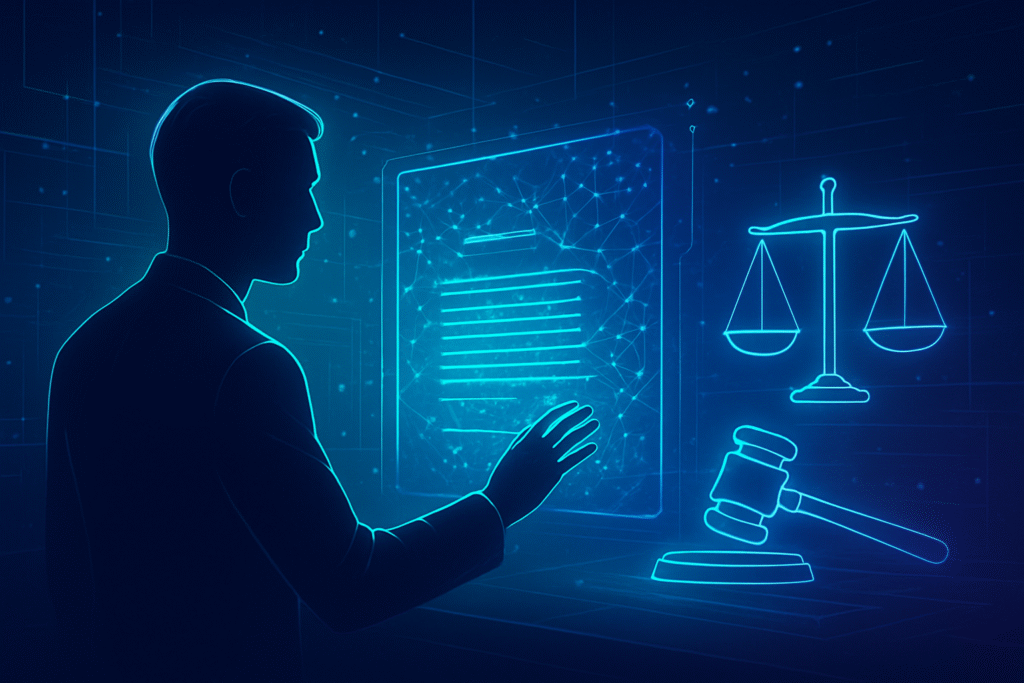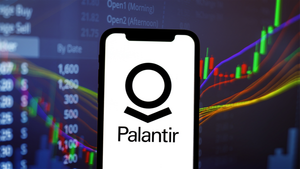
The Miami-Dade County Public Defender's office has emerged as a groundbreaking leader in the legal field by extensively adopting artificial intelligence (AI) technology to enhance its operations and support its demanding caseload. This strategic integration, which began with beta testing in 2022 and operational use for front-line defenders by June 2023, with public announcements around December 2023, positions the office as one of the first public defender's offices in the United States to leverage advanced AI for core legal work. This move signifies a pivotal moment for AI adoption in the legal sector, demonstrating its immediate significance in improving efficiency, managing overwhelming workloads, and ultimately bolstering legal support for indigent clients.
The AI technology, specifically Casetext's CoCounsel, is assisting the Miami-Dade Public Defender's office with a variety of time-consuming and labor-intensive legal tasks, thereby augmenting the work of its 400-person staff, which includes approximately 230 lawyers. Key applications span information organization and research, document generation (such as drafting briefs, assembling reports, preparing depositions, and writing memos), and critical evidence review. With the "onslaught of digital material" like text, audio, and video evidence, AI is proving invaluable in processing and transcribing these sources, enabling lawyers to effectively review all digital evidence. While not replacing direct lawyer-client interaction, AI tools also support client communication by assisting in rewording messages for clarity or summarizing documents. This initiative provides a critical solution to the office's challenge of balancing roughly 15,000 open cases at any given time, showcasing AI's immediate impact on workload management and efficiency.
The Technical Backbone: CoCounsel's Advanced Capabilities and Methodological Shift
The Miami-Dade Public Defender's office has deployed CoCounsel by Casetext (now part of Thomson Reuters (NYSE: TRI)), an AI-powered legal assistant tailored specifically for the legal sector. The office initiated its use of CoCounsel in 2022 during its beta phase, securing approximately 100 individual licenses for its felony division attorneys. This early adoption highlights Casetext's proactive approach to integrating generative AI into legal practice.
At its core, CoCounsel is powered by OpenAI's most advanced Large Language Model (LLM), GPT-4. This foundational technology is renowned for its ability to understand language nuances, generate original responses, and engage in complex conversations. Casetext has significantly enhanced GPT-4 for legal applications by integrating its proprietary legal databases, which encompass over 150 years of authoritative legal content, and its specialized legal search system, ParallelSearch. This ensures the AI draws upon verified legal data, a critical factor for accuracy in legal contexts. The system also employs transformer models for concept-based searching through natural language processing, a more sophisticated method than traditional keyword-based searches. Crucially, Casetext has implemented rigorous "guardrails" to prevent "hallucinations"—the AI's tendency to generate false information or make up citations. Their Trust Team dedicated nearly 4,000 hours to training and fine-tuning CoCounsel, with daily tests to maintain reliability. Furthermore, CoCounsel operates with a "zero-retention API," meaning client data is not retained or used for model development, addressing paramount security and confidentiality concerns.
This AI integration marks a profound departure from previous manual and less advanced digital approaches. Legal research and document review, once labor-intensive tasks consuming countless attorney hours, are now executed at "superhuman speeds." CoCounsel can generate comprehensive research memos in minutes and analyze thousands of cases in seconds, tasks that previously took hours or weeks. For under-resourced public defender offices, this acts as a "force multiplier," performing an estimated 60% of tasks typically handled by paralegals or attorneys, thereby allowing human lawyers to focus on strategic work and client interaction. The AI also aids in managing the "onslaught of digital material" from modern discovery, a task often impossible to complete manually due to sheer volume. Initial reactions from legal tech experts have been largely positive, recognizing the immense potential for efficiency and access to justice. However, concerns regarding "hallucinations" necessitate mandatory human verification of all AI-generated output, and a learning curve for "prompt engineering" has been noted among users.
Reshaping the AI Industry: Beneficiaries, Competition, and Market Disruption
The adoption of AI by the Miami-Dade Public Defender's office carries significant implications for AI companies, tech giants, and startups within the legal AI space. This initiative provides crucial validation for the efficacy of specialized legal AI and signals a growing demand that will reshape competitive dynamics.
The most immediate and direct beneficiaries are Casetext (now part of Thomson Reuters (NYSE: TRI)) and OpenAI. Casetext's CoCounsel, being the chosen platform, receives substantial validation, particularly within the public sector. Thomson Reuters' strategic acquisition of Casetext in August 2023, integrating CoCounsel into its broader AI strategy and offerings like Westlaw Precision, demonstrates a foresight that is now paying dividends. This acquisition allows Thomson Reuters to accelerate its generative AI capabilities, leveraging Casetext's innovation with its extensive legal content. OpenAI, as the developer of the underlying GPT-4 model, indirectly benefits from the increased adoption of its foundational technology in a specialized, high-stakes vertical, showcasing its versatility and power.
The successful implementation by a public defender's office serves as a compelling case study for wider adoption, intensifying competition. It underscores a shift towards "vertical AI" specialization, where AI systems are deeply tailored to specific industries. This means major AI labs and tech companies aiming to penetrate the legal sector will need to either develop highly specialized solutions or partner with/acquire existing legal tech startups with deep domain expertise. Incumbents like Thomson Reuters, with decades of proprietary legal data through platforms like Westlaw, hold a significant strategic advantage, as this data is crucial for training accurate and reliable legal AI models. The "build, buy, partner" strategy, exemplified by Thomson Reuters' acquisition of Casetext, is likely to continue, leading to further consolidation in the legal tech market.
This development also poses potential disruption to existing products and services. AI-powered tools can cut legal research times by as much as 90%, directly challenging legacy legal research platforms lacking robust AI integration. Document review and drafting, traditionally time-consuming tasks, are streamlined, potentially saving billions in legal costs and disrupting manual processes. The enhanced efficiency could also challenge the traditional billable hour model, potentially leading to more fixed-fee billing and increased affordability of legal services. Law firms that fail to strategically adopt AI risk being outpaced by more efficient competitors. Companies that prioritize rigorous testing, human oversight, data privacy, and ethical guidelines for AI use will build greater trust and secure a strong market position, as trust and accuracy are paramount in the legal field.
A New Chapter in Legal AI: Broader Significance and Ethical Imperatives
The Miami-Dade Public Defender's AI adoption marks a significant chapter in the broader AI landscape, signaling not just technological advancement but a fundamental shift in how legal services can be delivered, particularly for social good. This initiative directly addresses the persistent "access to justice gap," a critical issue for under-resourced public defender offices. By automating time-intensive tasks, AI frees up legal professionals to focus on higher-value activities like client advocacy and strategic decision-making, potentially leading to better representation for indigent clients and democratizing access to advanced legal technology.
This development aligns with several overarching AI trends: the proliferation of generative AI, the automation of routine tasks, the drive for increased efficiency and productivity, and the growing demand for specialized AI tools tailored to niche industry needs. The legal sector, in particular, has seen a surge in AI tool usage, with professionals reporting significant productivity gains. For the legal profession, AI integration means enhanced efficiency, a necessary shift in skill requirements towards AI literacy and oversight, and the potential for new interdisciplinary roles. It also foreshadows changes in billing models, moving towards more value-based structures.
However, the adoption of AI in such a sensitive field also brings critical concerns to the forefront. Bias and fairness are paramount; AI systems trained on historical data can perpetuate existing societal biases, potentially leading to discriminatory outcomes in criminal justice. The risk of accuracy issues and "hallucinations," where AI generates plausible but incorrect information, necessitates mandatory human verification of all AI outputs. Ethical considerations around client confidentiality, data protection, professional competence, and the transparency of AI decision-making processes remain central. While AI is largely seen as an augmentative tool, concerns about job displacement, particularly for roles involving routine tasks, are valid, though many experts predict augmentation rather than outright replacement. There is also a risk of over-reliance and skill erosion if legal professionals become too dependent on AI without developing foundational legal skills.
Comparing this to previous AI milestones, the current wave of generative AI, exemplified by CoCounsel, represents a leap from earlier predictive AI tools in legal tech. This shift from analysis to content creation is akin to how deep learning revolutionized fields like image recognition. While parallels exist with AI adoption in healthcare, finance, and manufacturing regarding efficiency and concerns, a distinguishing factor in the legal sector's AI adoption, especially with public defenders, is the strong emphasis on leveraging AI to address critical societal issues like access to justice.
The Horizon: Future Developments and the Evolving Legal Landscape
The Miami-Dade Public Defender's pioneering AI adoption serves as a blueprint for the future of legal technology. In the near term, we can expect AI tools to become even more sophisticated in legal research and writing, offering more nuanced summaries and drafting initial documents with greater accuracy. Automated document review and e-discovery will continue to advance, with AI quickly identifying relevant information and flagging inconsistencies across vast datasets. Improved case management and workflow automation will streamline administrative tasks, while predictive analytics will offer more precise insights into case outcomes and optimal strategies. For public defenders, specialized evidence analysis, including the transcription and synthesis of digital media, will become increasingly vital.
Looking further ahead, the long-term vision includes agentic workflows, where autonomous AI systems can complete entire legal processes from client intake to document filing with minimal human intervention. Hyper-personalized legal tools will adapt to individual user needs, offering bespoke solutions. This efficiency will also accelerate the transformation of legal business models away from the traditional billable hour towards fixed fees and value-based billing, significantly enhancing access to justice by reducing costs. The legal profession is likely to evolve into a hybrid practice, with AI handling routine cases and human attorneys focusing on complex legal issues, strategic thinking, and client relationships. Concurrently, governments and regulatory bodies will increasingly focus on developing comprehensive AI governance and ethical frameworks to ensure responsible use.
Despite the immense potential, several critical challenges must be addressed. Ethical and regulatory concerns, particularly regarding confidentiality, competence, and the potential for bias in algorithms, will require ongoing attention and clear guidelines. The persistent issue of "hallucinations" in generative AI necessitates rigorous human verification of all outputs. Data privacy and security remain paramount, especially with sensitive client information. Furthermore, the legal field must overcome training gaps and a lack of AI expertise, ensuring that legal professionals are proficient in leveraging AI while preserving essential human judgment and empathy. Experts overwhelmingly predict that AI will augment, not replace, human lawyers, creating a competitive divide between early adopters and those who lag. Law schools are already updating curricula to prepare future attorneys for an AI-integrated profession.
A Transformative Moment: Concluding Thoughts on AI in Legal Aid
The Miami-Dade Public Defender's office's embrace of AI is not merely a technological upgrade; it represents a bold, transformative step in the history of AI within the legal sector. By leveraging advanced tools like Casetext's CoCounsel, the office is demonstrating AI's profound potential to enhance efficiency, manage overwhelming caseloads, and critically, improve access to justice for underserved communities. This initiative underscores that AI is not just for corporate giants but can be a powerful force for equity in public service.
The key takeaways from Miami-Dade's experience highlight AI's capacity to streamline legal research, automate document drafting, and manage complex digital evidence, fundamentally altering the day-to-day operations of legal defense. While the benefits of increased productivity and strategic focus are undeniable, the journey also illuminates crucial challenges, particularly regarding the ethical implementation of AI, the imperative for human oversight to mitigate bias and ensure accuracy, and the need for continuous training and adaptation within the legal workforce.
In the long term, this development is poised to redefine legal roles, shift billing models, and potentially standardize best practices for AI integration across public defense. The aspiration to use AI to identify and mitigate systemic biases within the justice system itself speaks to the technology's profound potential for social good.
In the coming weeks and months, all eyes will be on Miami-Dade's quantifiable results—data on case processing times, workload reduction, and, most importantly, client outcomes—to validate the investment and effectiveness of this groundbreaking approach. The refinement of attorney-AI workflows, the evolution of ethical guidelines, and the development of comprehensive training programs will also be critical indicators. As other jurisdictions observe Miami-Dade's success, this model of AI adoption is likely to spread, further cementing AI's indispensable role in shaping a more efficient, equitable, and accessible future for the legal profession.
This content is intended for informational purposes only and represents analysis of current AI developments.
TokenRing AI delivers enterprise-grade solutions for multi-agent AI workflow orchestration, AI-powered development tools, and seamless remote collaboration platforms.
For more information, visit https://www.tokenring.ai/.





